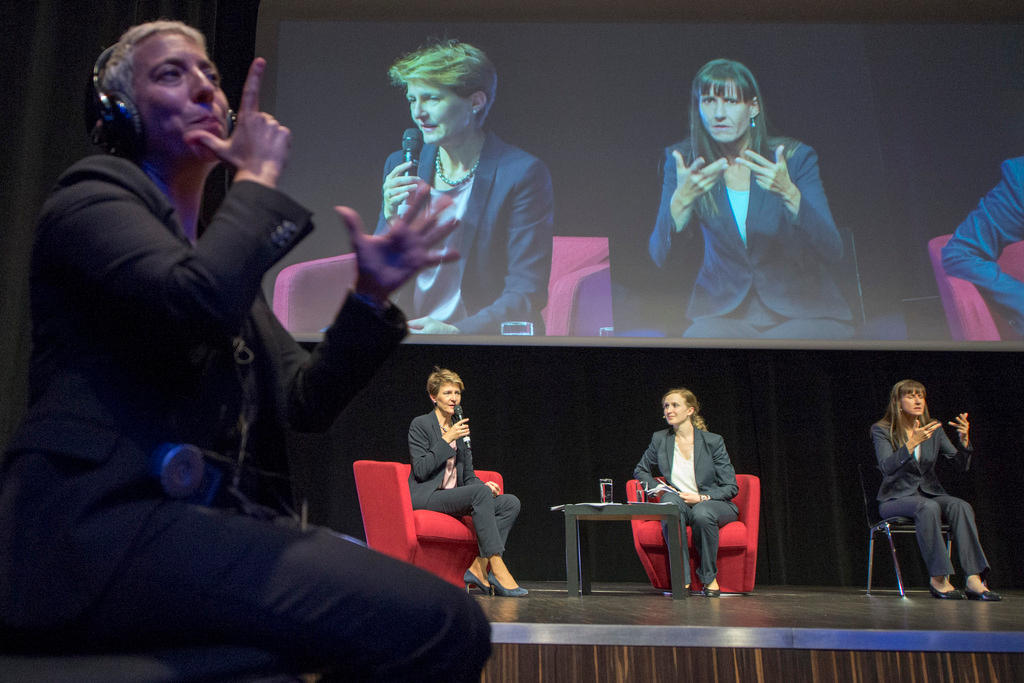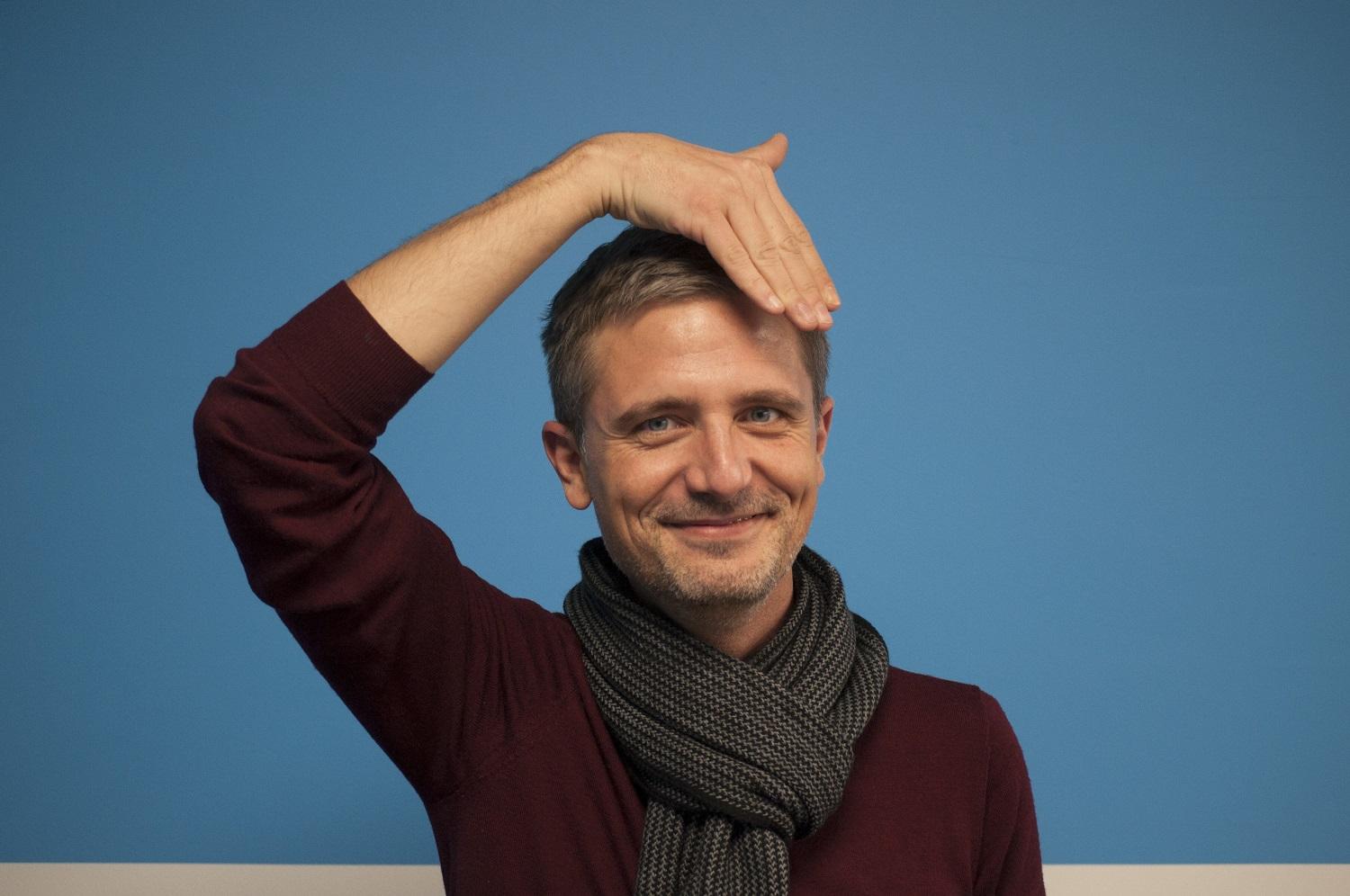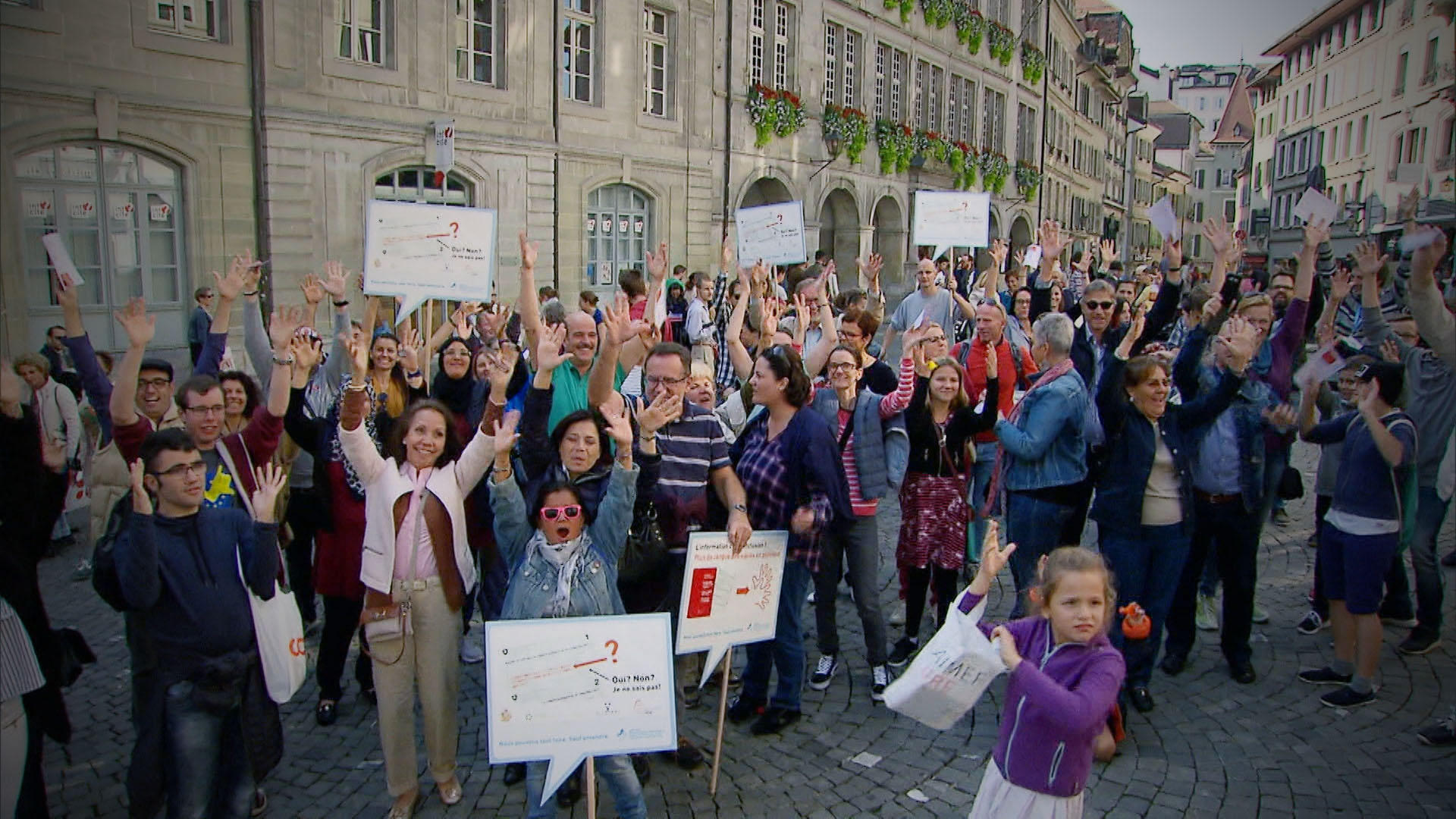
Deaf Swiss demand political information in sign language

Voting pamphlets and explanations of federal bills should be available online in sign language, says the Swiss Federation for the Deaf, which has handed in a petition to the federal chancellery.
For the more than 10,000 people in Switzerland who are deaf or profoundly hard of hearing, the voting pamphlet appears in the “wrong language”, the federation said in a statementExternal link on Monday.
“Their language is sign language. Written German is a foreign language they have to struggle to learn,” it wrote. “Having to understand complex political content in this foreign language is an unnecessary hurdle which violates Swiss and international law on barrier-free access to information.”
The federation explained that without appropriate measures, “the free formation of opinions and therefore political participation is made more difficult – if not impossible – for affected people”.

More
Trump chosen as ‘sign of the year’ by Swiss deaf society
More than 2,700 signatures were collected on Saturday, National Sign Language Day. The petition calls for all political information producing by the state to be made accessible in sign language, beginning at a federal level.
Written challenge
But is this really necessary? Surely deaf people can read?
“They can read, because they learn to in school – just like speaking,” Martina Raschle, spokeswoman for the Swiss Federation for the Deaf in German-speaking Switzerland, told swissinfo.ch.
“Hearing people learn written words by their sound. But for deaf people that’s a lot harder and a real memory test. What’s more, they don’t pick up new words in passing – every word must be learnt individually with its grammatical use. Sign language is image-based, completely visual and has a different grammar from spoken languages,” she explained.
Raschle pointed out that while there were “excellent and passionate” readers among the deaf community and deaf people have to use the written language in their jobs, it’s hard for most deaf people to write a faultless letter, for example because of German’s complex rules governing the definite and indefinite articles.
“Deaf people learn a written language that they then only use to communicate if it can’t be avoided,” she said. “They rarely use written language to communicate with each other. That’s become even less common with video messaging. Today, people send each other a short, textless sign language video by email or WhatsApp.”
When it comes to media, they predominantly turn to media with images that illustrate the text. “Television, with sign language or subtitles, is more popular than newspapers,” she said.
For its part, swissinfo.ch offers subtitles on all of its videos and audio image captions for people who are visually impaired.
Official language?
But reading German, French or Italian is a challenge for many people in Switzerland – a quarter of the population is foreign. Why should deaf people receive special treatment?
“Because people with hearing disabilities have the right, via various laws and agreements, to information in sign language,” Raschle said, citing, among others, Article 14 of the federal law on removing inequalities for people with disabilitiesExternal link.
“Without sign language, deaf people don’t have the same opportunity to participate in society or education as the rest of the population,” she said.

More
Political information in sign language
No precise figures exist, but based on estimates in other countries Raschle says unemployment is around three times higher than among deaf people than hearing people.
This is one of the reasons why the federation is pushing for sign language to be recognised as an official language in Switzerland.
“The recognition of the three Swiss sign languages [German, French and Italian] at a federal level is one of the strategic aims of the Swiss Federation for the Deaf. In this respect Switzerland is lagging behind internationally: in many countries sign language is recognised as an official or national language.”
Around a fifth of the world’s nationsExternal link recognise sign language, according to the World Federation of the Deaf.
What do you think? Do you agree with the petition organisers?

In compliance with the JTI standards
More: SWI swissinfo.ch certified by the Journalism Trust Initiative































You can find an overview of ongoing debates with our journalists here . Please join us!
If you want to start a conversation about a topic raised in this article or want to report factual errors, email us at english@swissinfo.ch.